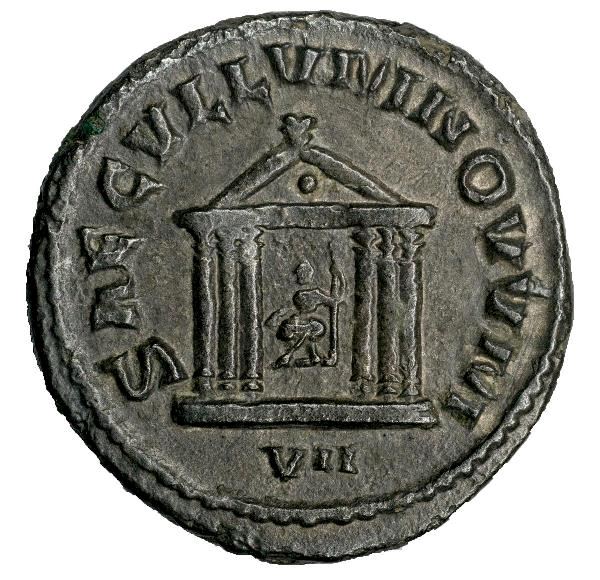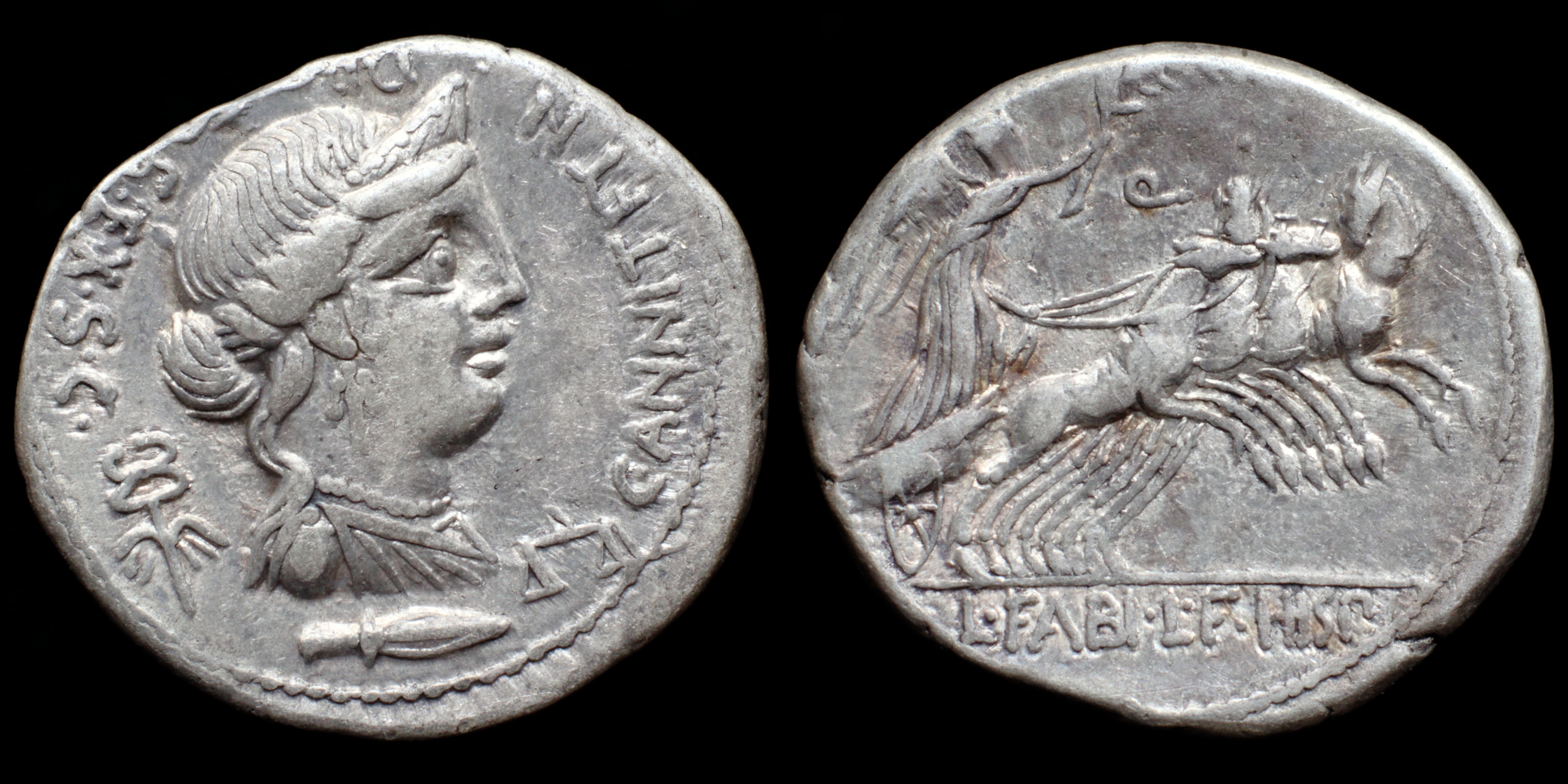Ok, so for some reason this ruler, mint, denomination or collection does not have a description yet - oops!
There are two possible explanations for this:
No description has been written yet
The property is incorrectly named
If the former, patience is key - this site covers thousands of entities, and all must have a manually created description written.
If the latter, try renaming the property - 'Domitian as Caesar' has no description, but 'Domitian' does.
There are two possible explanations for this:
If the former, patience is key - this site covers thousands of entities, and all must have a manually created description written.
If the latter, try renaming the property - 'Domitian as Caesar' has no description, but 'Domitian' does.


An
AR
Denarius
struck 82-81 BC
in
Military Mint
|
Narbonensis
Obverse: diademed draped bust of Anna Parenna right; caduceus left, scales right, dagger below C·ANNI·T·F·T·N · PRO·COS·EX·S·C·
Reverse: Victory in quadriga right, holding palm branch and reins, Q / L·FABI·L·F·HISP
Diameter:
19.5 mm
Die Orientation: -
Weight: 3.7 g
Die Orientation: -
Weight: 3.7 g
C. Annius T.f. T.n. Luscus and L. Fabius L.f. Hispaniensis, mint in north Italy. Moneyer apparently used Anna Parenna as a pun to his name Annius. It is the only known depiction of Anna Parenna whose identity is very complicated. "An older myth tells that Anna Perenna was an old woman from the city of Bollivae in Latium. The myth tells that Anna Perenna brought bread and cakes to the Plebeians who wanted to separate from Rome because of their unequal status as Plebeians in 494 BC and so she saved them from starving. This is why she was popular on the common people and considered as goddes after her death. A later tradition from the time of the myth of Aeneas made Anna the sister of Dido. After Dido has committed suicide and Carthage was conquered she had to fly. A heavy storm throw her to the coast of Latium at Laurentum where Aeneas was the ruler. Aeneas and his companion went to the beach and he recognized her and took her to his palace. In a dream Anna was warned to be alarmed at the traps that Lavinia, Aeneas' wife, would set for her so she fled from the palace. While she was wandering she met Numicius, the god of a nearby stream who carried her off to his bed. The servants of Aeneas searched for Anna and followed her tracks to the river bank a shape rose from the water and revealed to them that Anna had become a water nymph, whose new name, Perenna, signified eternity. Aeneas' servants in their joy scattered among the fields and passed the day in feasting and festivities, which became established as an annual celebration of the festival of Anna Perenna. There is another opinion too that she committed suicide by drowning in the river Numicius because of her desperation. In another myth she was an old woman again. Mars was fallen in love to Minerva, sworn virgin. Mars asked Anna Perenna for interceding on his behalf. But instead of this - knowing about the impossibility of his wishes - she dressed herself like Minerva and came to Mars veiled. When he tried to kiss her she lifted her veil, break out in laughter and mocked Mars. Minerva's main festival, the Quinquatrus, was celebrated 4 days after the festival of Anna Perenna so this could be reason of this story." from Jochen's coins of mythological interest.
Crawford 366/1a, SRCV I 289, Sydenham 748, RSC I Annia 2
